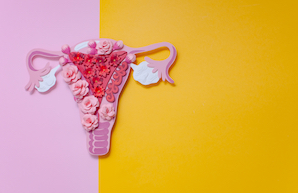Infertility is a common fear with endometriosis, a debilitating condition estimated to affect one in 10 women of reproductive age. But there are steps you can take to improve your chances of getting pregnant, and many women with endometriosis go on to have healthy babies.
Understand endometriosis
Endometriosis happens when tissue like that lining your uterus grows elsewhere in your body, mostly in your abdominal cavity. It changes hormonally with your menstrual cycle, and can lead to inflammation, non-cancerous but painful cysts, and lesions that fuse organs together. It can also cause scarring and blockages that may affect your fertility, says Joburg sufferer Lynne Zurnamer, co-founder of Endometriosis South Africa. According to a scientific review, some 30-50% of women with endometriosis have infertility.
Spot the signs of endometriosis
The earlier you are diagnosed and can start managing the condition, the better the chance your fertility can be preserved. A prime indicator is ongoing, severe pelvic pain that may extend to your lower back and legs. Other signs can be irregular or heavy periods or spotting, blood in your urine or stools, and pain during or after sex, urination or bowel movements. Have these checked out. They may signal other conditions, such as pelvic inflammatory disease or irritable bowel syndrome. But a third of women with endometriosis have no symptoms at all. “Endometriosis can creep up, and the first some women know if it is when they fail to get pregnant and go for fertility [treatment],” says Zurnamer.
Get a diagnosis
“Endometriosis can be seen on ultrasound, and recto-vaginal nodes can be palpated during clinical examination,” says Dr Elize Wethmar, a Benoni gynaecological oncologist and another endometriosis sufferer. The only way to diagnose it conclusively is by diagnostic laparoscopy (keyhole surgery), taking samples of tissue for analysis.
Follow your gynaecologist or obstetrician’s treatment advice
Ask your healthcare provider to refer you to a gynaecologist or obstetrician who specialises in endometriosis. There is no cure for endometriosis, but treatment can relieve pain and slow the growth of endometrial tissue, improving your chances of fertility. Dienogest, an oral progestin used in birth control pills, is the first medication specifically for avoiding endometriosis infertility and approved by the Medicines Control Council.
“It also helps control pelvic pain,” Wethmar says. Some women go for surgery to remove tissue or blockages, but it isn’t always possible or successful. “Endometriosis needs a surgeon with sufficient skill, and deep infiltrative endometriosis needs to be operated on at a centre dedicated to the management of this condition,” she says. There’s still a high chance of regrowth (up to 50% or more of patients have this), according to a report in Human Reproduction Update. “The more one operates, the more adhesions can form,” cautions Wethmar. “And operating on young ovaries continuously depletes ovarian reserve, so timing and planning of surgery is essential.”
Work with a fertility expert
Endometriosis may prevent pregnancy not only by blocking the passage of eggs down your fallopian tubes, or of sperm up them, but by the inflammation it can causes of the pelvis possibly stimulating the production of cells that attack sperm, according to Endometriosis.org.
You may require assisted reproductive technology, such as intrauterine insemination, where sperm is placed directly in your uterus, possibly in tandem with ‘controlled ovarian hyperstimulation’, where medication stimulates your ovaries to produce more eggs, to increase your likelihood of conception. In vitro fertilisation may be another option, where your egg is fertilised in a laboratory, then implanted.
Understand the risk of pregnancy complications
A study in the journal Obstetrics and Gynecology found endometriosis was associated with a 40% higher risk of miscarriage. A meta-analysis in the Journal of Minimally Invasive Gynecology found women with endometriosis have a 2.66 times higher risk of an ectopic or tubal pregnancy – a serious condition where pregnancy occurs outside the uterus.
Stay positive
Many women with endometriosis have successful pregnancies. And as a bonus, the hormonal changes brought on by pregnancy and breastfeeding can ease the symptoms of endometriosis, though these generally return after birth. Remind yourself that some 50-70% of women with endometriosis have no problems getting pregnant and giving birth.
Some don’t even know they have endometriosis, attributing their pain to other conditions.
For support contact Endometriosis SA/EndoWarriors SA on Facebook, call or WhatsApp them on 076 295 8290, or email [email protected].
IMAGE CREDIT: Shutterstock

